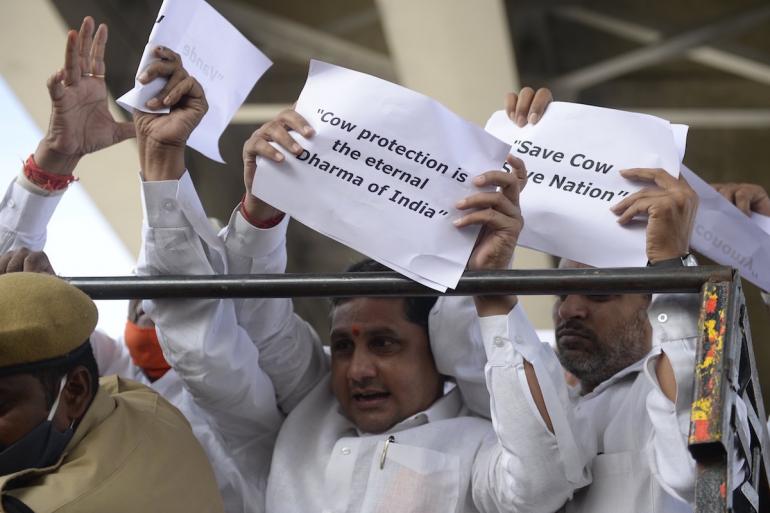Indian Christians warn against religious propaganda about cows

A group of Indian Christians have warned against what they described as a “propaganda operation” that might “polarize society along ethno-religious lines.”
The Global Council of Indian Christians (GCIC) was reacting to a syllabus released by a government agency that claims that “Jesus Christ said that killing a cow is like killing a human being.”
A report by the Italian site AsiaNews.it said the “quote” is found in a syllabus designed to prepare for a “national cow exam.”
Sajan K. George, GCIC president, however, warned that it might trigger violence against Christians, Adivasis, Dalits, and Muslims.
The syllabus also claimed that earthquakes are caused by slaughtering cattle and Africa is arid because cow dung is no longer used as fuel.
The National Kamadhenu Commission, known as RKA, which is responsible for the welfare of India’s sacred cows and its use for human benefit, issued the syllabus ahead of an online examination on Feb. 25.
The syllabus contains questions and answers, comments and explanations that aim to help people prepare for the exam.
Vallabhbhai Kathiria, RKA chairman, said the exam is aimed mainly at students, and serves to “raise awareness and educate” people on cattle and learn about “cow science.”
AsiaNews.it said that one section of the syllabus titled “What famous people said about the cow,” attributed the quote from Jesus Christ.
GCIC’s George, however, said the quote is a “half-truth.” He said the Jesus quote is not only false (no source is mentioned in the syllabus), but dangerous.
“Tribal Christians have been lynched for skinning dead cows,” he said. So-called “cow vigilantes” have also targeted Muslims, tribal people and Dalits.
“Anyone who eats beef could be crushed by anti-slaughter laws,” said George.
The GCIC has issued a statement calling for the removal of the Jesus quote from the syllabus. - LiCAS.news
Radio Veritas Asia (RVA), a media platform of the Catholic Church, aims to share Christ. RVA started in 1969 as a continental Catholic radio station to serve Asian countries in their respective local language, thus earning the tag “the Voice of Asian Christianity.” Responding to the emerging context, RVA embraced media platforms to connect with the global Asian audience via its 21 language websites and various social media platforms.














